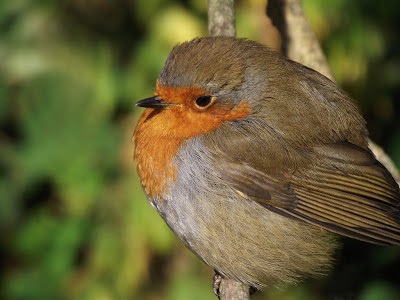Sweet
little bird in russet coat
The livery of the closing yearI love thy lonely plaintive note
& tiney whispering song to hear
While on the stile or garden seat
I sit to watch the falling leaves
The songs thy little joys repeat
My lonliness relieves
& many are the lonely minds
That hear & welcome thee anew
Not taste alone but humble hinds
Delight to praise & love thee too
The veriest clown biside his cart
Turns from his song with many a smile
To see thee from the hedgerow start
To sing upon the stile
(lines 1-16)
Poems by John Clare, ed. Norman Gale
(Rugby : George E. Over, 1901)










